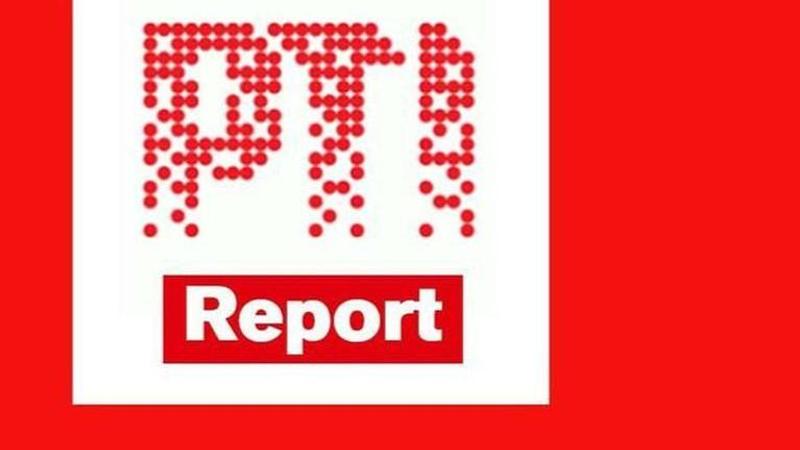Published 19:26 IST, June 19th 2020
Calls for abolishing veto power to P5 members of UNSC "irresponsible": Putin
In a lengthy article titled '75th anniversary of the Great Victory: Shared responsibility to history and our future', Putin touches upon a plethora of topics: from insisting on recognition of the Soviet Union as the main defeater of Nazi Germany, to criticising Poland's actions before the war, the COVID-19 pandemic and importance of the United Nations, among others

The principles of the UN Security Council are a unique mechanism for preventing a major war or a global conflict, Russian President Vladimir Putin has said, asserting that the calls to abolish the power of veto and to deny special opportunities to the permanent members are "irresponsible".
In a lengthy article titled '75th anniversary of the Great Victory: Shared responsibility to history and our future', Putin touches upon a plethora of topics: from insisting on recognition of the Soviet Union as the main defeater of Nazi Germany, to criticising Poland's actions before the war, the COVID-19 pandemic and importance of the United Nations, among others.
"It is essential to pass on to future generations the memory of the fact that the Nazis were defeated first and foremost by the Soviet people," Putin writes in the essay that has come six days before a huge military parade in Red Square to commemorate the end of World War II in Europe.
Nearly 27 million Soviet troops and civilians were killed in World War II and the Red Army's victory is a huge source of pride in Russia.
The Russian president agrees that the UN system currently experiences "certain tension" in its work and is not as effective as it could be, but asserts that the world body still performs its primary function.
"The principles of the UN Security Council are a unique mechanism for preventing a major war or a global conflict. The calls that have been made quite often in recent years to abolish the power of veto, to deny special opportunities to permanent members of the Security Council are actually irresponsible," he writes.
"After all, if that happens, the United Nations would in essence become the League of Nations – a meeting for empty talk without any leverage on the world processes. How it ended is well known. That is why the victor powers approached the formation of the new system of the world order with utmost seriousness seeking to avoid repetition of mistakes made by their predecessors," he notes.
The five permanent members of the 15-member UNSC are China, France, Russia, the UK, and the US.
A new global confrontation started almost immediately after the end of World War II and was at times very fierce. And the fact that the Cold War did not grow into the Third World War has become a clear testimony of the effectiveness of the agreements concluded by the Big Three. The rules of conduct agreed upon during the creation of the UN made it possible to further minimise risks and keep confrontation under control, Putin writes.
"What is the power of veto in the UN Security Council? To put it bluntly, it is the only reasonable alternative to a direct confrontation between major countries. It is a statement by one of the five powers that a decision is unacceptable to it and is contrary to its interests and its ideas about the right approach.
"And other countries, even if they do not agree, take this position as a given, abandoning any attempts to realise their unilateral efforts. It means that in one way or another it is necessary to seek compromises," he said.
The Russian president said that the creation of the modern system of international relations was one of the major outcomes of World War II.
He expressed hope that a Russia-proposed summit of the leaders of the UN Security Council's veto-holding countries would take place soon.
"Today, as in 1945, it is important to demonstrate political will and discuss the future together. Our colleagues – Mr Xi Jinping, Mr Macron, Mr Trump and Mr Johnson – supported the Russian initiative to hold a meeting of the leaders of the five nuclear-weapon states, permanent members of the Security Council. We thank them for this and hope that such face-to-face meeting could take place as soon as possible," Putin said.
He said the agenda for the upcoming summit would be to discuss steps to develop collective principles in world affairs, speak frankly about the issues of preserving peace, strengthening global and regional security, strategic arms control, about joint efforts in countering terrorism, extremism and other major challenges and threats.
"A special item on the agenda of the meeting is the situation in the global economy. And above all, overcoming the economic crisis caused by the coronavirus pandemic," he said.
"Popular issues include environmental protection and combating climate change, as well as ensuring the security of the global information space," he said.
"There can be no doubt that the summit of Russia, China, France, the United States, and the UK will play an important role in finding common answers to modern challenges and threats, and will demonstrate a common commitment to the spirit of alliance, to those high humanist ideals and values for which our fathers and grandfathers fought shoulder to shoulder," Putin said.
Updated 19:26 IST, June 19th 2020




